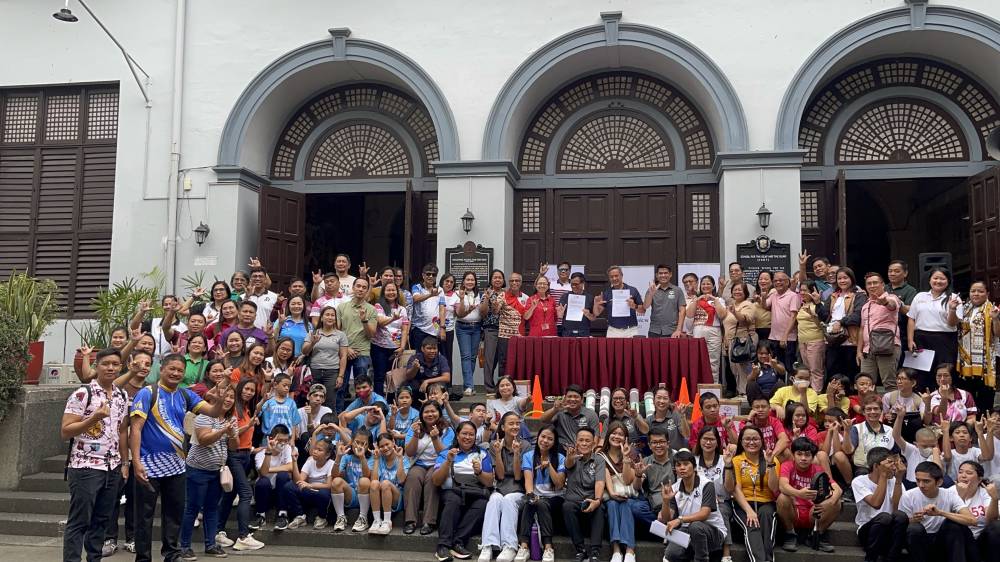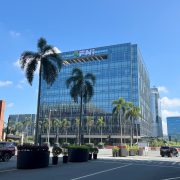Special Olympics: Investing in inclusive sports is ‘game changing’

When venture capital veteran Martin Lichauco is not chasing corporate deals, he is promoting inclusive sports and youth leadership—and enlisting like-minded peers in the business community to join the advocacy.
The president of private equity firm Warburg Pincus Philippines is going all out to drum up much-needed support for the Unified Champion Schools program of nonprofit Special Olympics Pilipinas (SOP), at which he has been serving as treasurer for four years.
“Great businesses invest in talent, diversity and innovation. SOP is doing the same—investing in individuals with intellectual disabilities by giving them the platform to thrive. Inclusion is not charity; it’s a strategy for long-term societal success,” Lichauco tells Sunday Biz.
To mark his 57th birthday this year, for instance, instead of throwing a party for fun, Lichauco organized on Friday an SOP fundraising concert featuring True Faith at Hard Rock Cafe.
SOP, after all, has set bold goals that will make history. This year, SOP National Games will be held to showcase Unified Sports at the national level.
And for the first time ever, athletes with intellectual disabilities will represent the Philippines at the Special Olympics Asia Pacific Games in Malaysia and Indonesia this 2025. Next year, the goal is to compete at the Asia Pacific 3×3 Basketball Tournament.

Looking further ahead, SOP aims to send a formidable contingent to the 2027 World Games in Chile.
To accomplish these, SOP plans to train 2,000 educators and implement Unified School Programming in 500 public schools, reaching 50,000 young people over the next four years.
“In business, market leaders are those who challenge the status quo and disrupt industries. Special Olympics athletes do the same—shattering barriers, redefining potential, and proving that ability transcends limitations,” says Lichauco.
Like in business, success in inclusion comes down to one thing—opportunity, he notes.
“SOP is building a future where talent isn’t overlooked, where every individual, regardless of ability, gets a fair chance to contribute and lead,” he adds.
Among the business leaders who have supported SOP’s cause are Lance Gokongwei, Chris Po, Injap Sia and Justin Liu, along with Lorenzo Tan, Michael de Jesus, Michael Rodriguez, Marivic Ortigas-Borromeo, Gerard Coscolluela, Glenn Garcia and Don Buhain. Companies like Gardenia and Dito have also sponsored some SOP events.
Reaching the grassroots
To execute its long-term plan, SOP recognizes the need to nurture the grassroots.
In November 2024, the first Unified Champion School (UCS) teachers and coaches training was held at the Schools Division Office (SDO)-Parañaque of the Department of Education (DepEd).
This year, SOP signed a memorandum of understanding with the DepEd. Similar arrangements were signed with SDO-Las Piñas and SDO-Pasay. SOP has brought into the fold the Philippine School for the Deaf, Philippine School for the Blind and other Special Needs Education schools.
The UCS program, Lichauco says, is not just an education initiative—“it’s an investment in leadership development.”
“By fostering inclusive mindsets in students today, we are building future executives, entrepreneurs and change-makers who understand the value of diversity,” he says.
Despite some people who think otherwise—United States President Donald Trump has scoffed at diversity, equity and inclusion initiatives of companies, for instance—Lichauco points out that companies that embrace inclusion outperform those that don’t.
“The same principle applies to education. Schools that integrate students with and without disabilities foster teamwork, innovation, and leadership—essential skills for any future workforce,” Lichauco says.
“Sustainable businesses don’t just focus on short-term wins—they build cultures that thrive over generations. Unified Champion Schools is shaping a generation that sees inclusion not as an initiative, but as an intrinsic part of how society and businesses should operate.”
Global Coalition for Inclusion
The Philippines has already made history as the first country in Asia-Pacific to sign the Global Coalition for Inclusion.
“Every great company has a vision, and every great movement has a mission. By signing the Global Coalition for Inclusion, the Philippines is proving that inclusion is not just a nice-to-have—it’s a must-have for economic and social progress,” Lichauco says.
“In venture capital, we back ideas that have the power to change industries. Inclusion is the most transformative investment we can make in society—it yields not just social returns, but economic and human capital dividends that benefit everyone.”
Launched in Berlin in 2023, this coalition is a pioneering multilateral effort wherein governments, industries, philanthropists and the development community are committed to create more inclusive schools and communities. Over the next three years, coalition members aim to benefit 2 million young people in more than 150,000 schools and scale Special Olympics programming to 180 nations.
“Leadership in business is about setting trends, not following them. The Philippines becoming the first in Asia Pacific to sign the Global Coalition for Inclusion is a game changer—proof that we are not just participants but pioneers in the global inclusion movement,” Lichauco says.
“Just as businesses scale by investing in people and systems, nations grow when they commit to social inclusion. The Philippines’ leadership in this coalition signals that we are serious about creating equitable opportunities for all.”





















